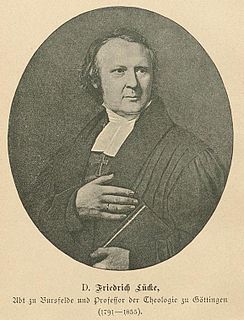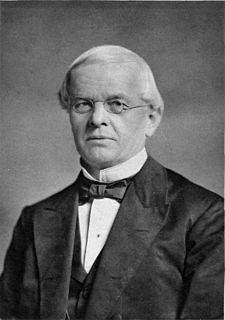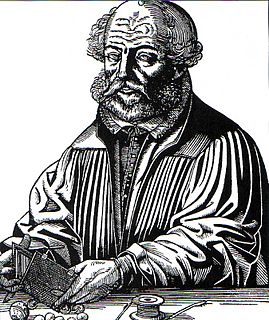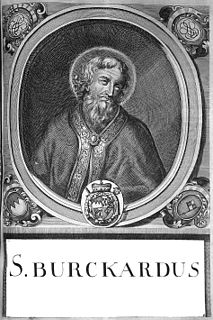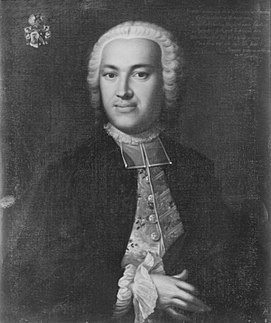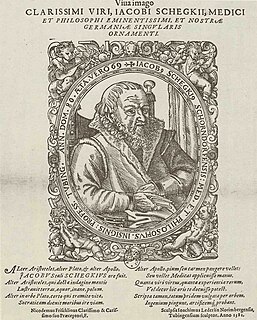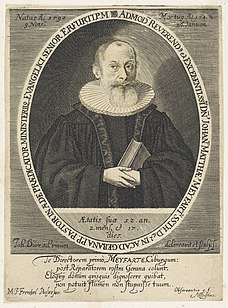| Burchard David Mauchart | |
|---|---|
 | |
| Born | 19 April 1696 Marbach am Neckar, Holy Roman Empire |
| Died | 11 April 1751 (aged 54) Tübingen, Holy Roman Empire |
| Nationality | German |
| Alma mater | University of Tübingen |
| Known for | Ophthalmology |
| Scientific career | |
| Fields | Anatomist and surgeon |
| Institutions | University of Tübingen |
| Doctoral advisor | Elias Rudolph Camerarius Jr. |
| Doctoral students | Philipp Friedrich Gmelin |
Burchard David Mauchart (19 April 1696 – 11 April 1751) was professor of anatomy and surgery at the University of Tübingen, Germany, and a pioneer in the field of ophthalmology. In 1748 he became one of the first to document the eye disorder now known as keratoconus. His surviving works are now to be found in the form of theses by his students.

Anatomy is the branch of biology concerned with the study of the structure of organisms and their parts. Anatomy is a branch of natural science which deals with the structural organization of living things. It is an old science, having its beginnings in prehistoric times. Anatomy is inherently tied to developmental biology, embryology, comparative anatomy, evolutionary biology, and phylogeny, as these are the processes by which anatomy is generated over immediate (embryology) and long (evolution) timescales. Anatomy and physiology, which study (respectively) the structure and function of organisms and their parts, make a natural pair of related disciplines, and they are often studied together. Human anatomy is one of the essential basic sciences that are applied in medicine.

Surgery is a medical specialty that uses operative manual and instrumental techniques on a patient to investigate or treat a pathological condition such as a disease or injury, to help improve bodily function or appearance or to repair unwanted ruptured areas.

The University of Tübingen, officially the Eberhard Karls University of Tübingen, is a public research university located in the city of Tübingen, Baden-Württemberg, Germany.
He obtained his Lic. Med. degree in 1722 at the University of Tübingen. Mauchart also studied for two years in Paris from 1718-1720 under the oculist Woolhouse.
